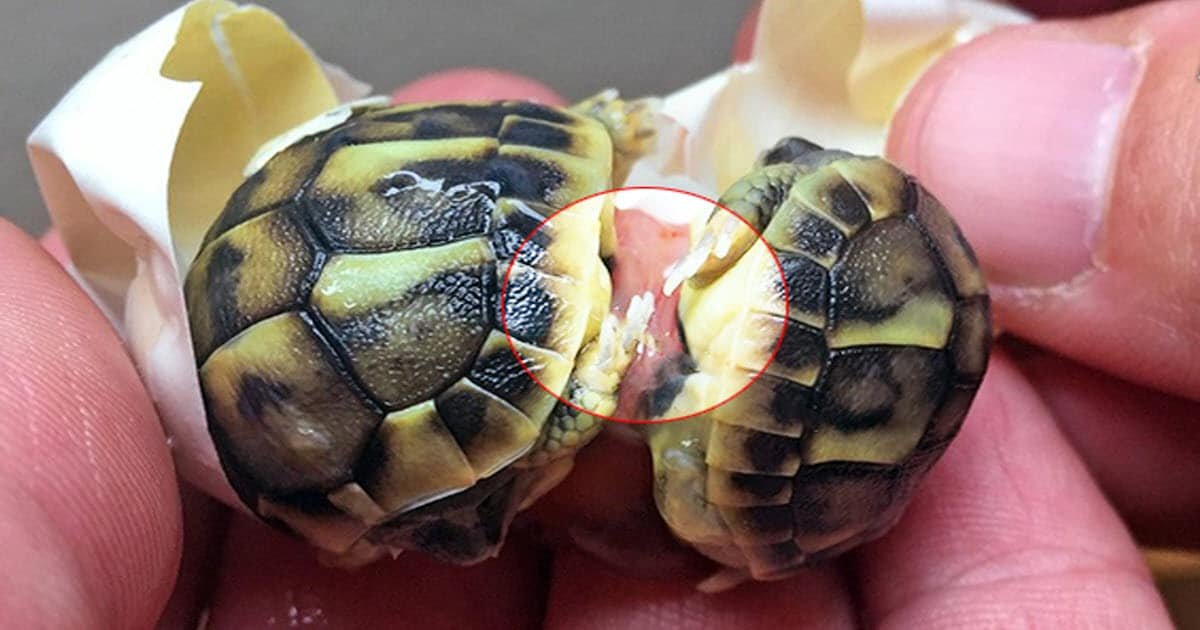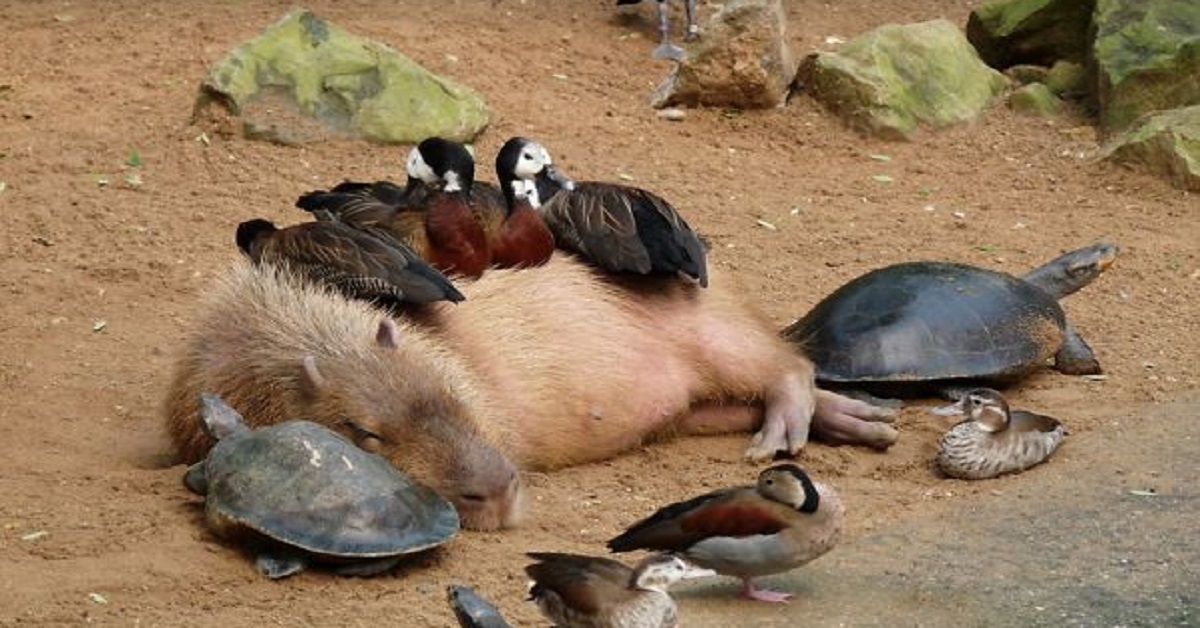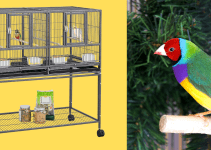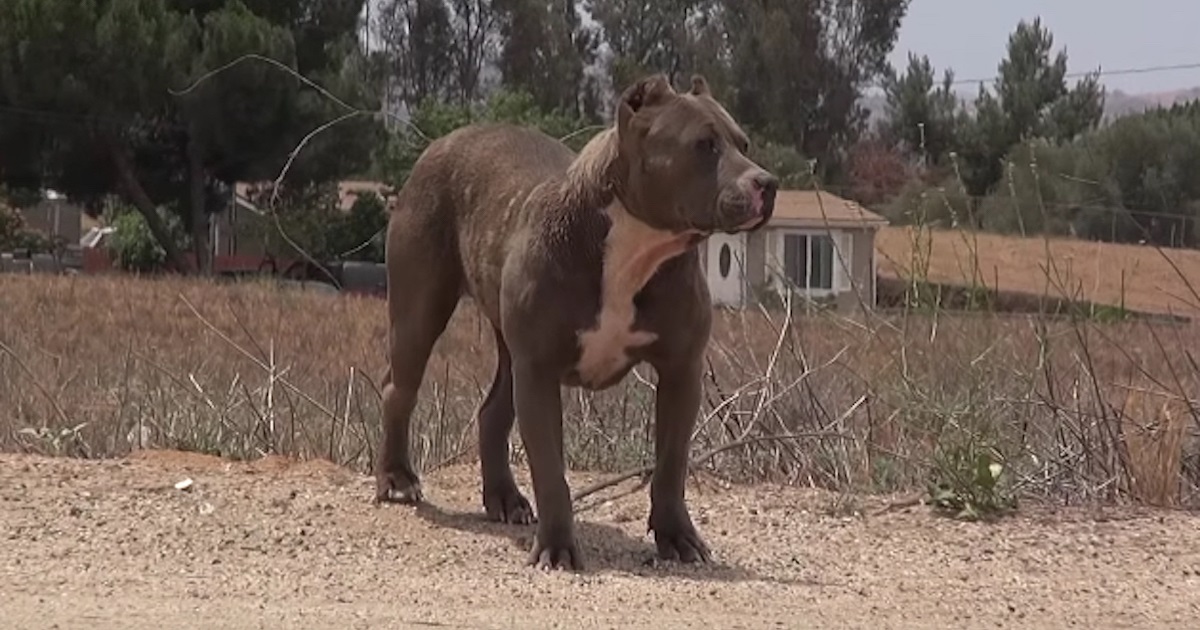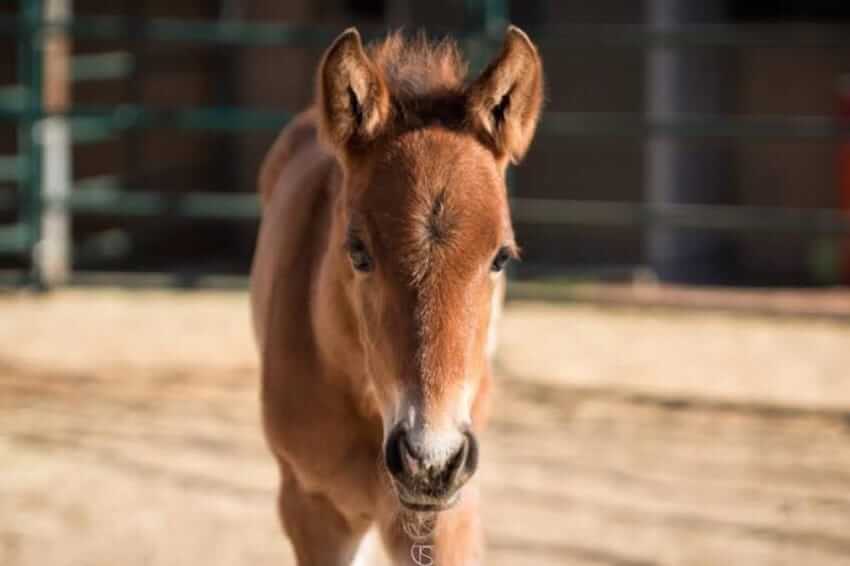Hello, fellow guinea pig owners and animal lovers! Today, let’s talk about a common question that many of us may have pondered: can guinea pigs eat mushrooms? As responsible pet owners, we want to ensure that our furry friends receive a balanced and safe diet. So, let’s dive into the world of mushrooms and guinea pigs to uncover the truth.
When it comes to mushrooms, it’s important to exercise caution. While some varieties can be safe for guinea pigs, others can be highly toxic. So, what’s the verdict? Let me guide you through the ins and outs of feeding mushrooms to our beloved small companions.
Can Guinea Pigs Eat Mushrooms? Yes, but with careful consideration.
- Guinea pigs can eat certain mushrooms, such as white, button, and portobello mushrooms, in moderation.
- Feeding wild mushrooms to guinea pigs can be extremely dangerous, as many of them are highly toxic.
- Mushrooms should only be offered as an occasional treat and not make up a significant part of a guinea pig’s diet.
- Mushrooms do provide some protein and fiber but lack essential nutrients like vitamin C that guinea pigs need.
- If you have any concerns or questions about feeding mushrooms to your guinea pig, consult with a veterinarian specializing in exotic pets.
The Nutritional Benefits of Mushrooms for Guinea Pigs
When it comes to adding variety to your guinea pig’s diet, mushrooms may be a tempting option. Mushrooms can provide a moderate source of plant-based protein and a modest amount of fiber, making them a potential addition to your furry friend’s food repertoire.
Mushrooms also contain essential nutrients like riboflavin and niacin, which are necessary for guinea pig health. These vitamins contribute to the overall well-being of your guinea pig, supporting their metabolism and immune system.
However, it’s important to remember that guinea pigs should primarily get their fiber from hay and grass, as these are essential for their digestive health. While mushrooms contain some fiber, they do not provide significant amounts of the essential nutrients that guinea pigs require, such as vitamin C.
Therefore, mushrooms should not be a regular part of a guinea pig’s diet. Instead, they should be given in small quantities as an occasional treat. It’s important to prioritize the main components of a guinea pig’s diet, which include hay, pellets, and fresh vegetables.
So, if you’re considering offering mushrooms to your guinea pig, remember moderation is key. While they can provide some nutritional benefits, mushrooms should not replace the main staples of your guinea pig’s diet. Instead, they can be an occasional addition to provide some variety and enrichment.
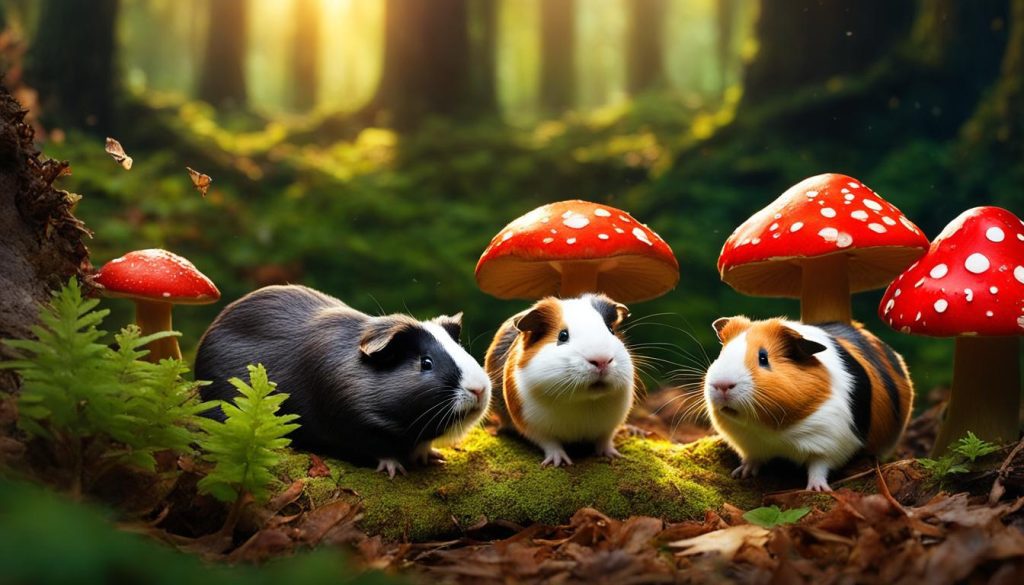
The Dangers of Wild Mushrooms for Guinea Pigs
Many wild mushrooms pose a significant threat to the health and safety of not only guinea pigs, but also other pets and even humans. It is crucial to understand the potential dangers that wild mushrooms can pose to our furry friends.
Even a small nibble of a wild mushroom can have devastating consequences for a guinea pig. Due to their small size, guinea pigs are particularly vulnerable to the toxic effects of certain mushrooms. What may seem like an innocent snack to us can be a life-threatening ingestion for our guinea pig companions.
Identifying wild mushrooms can be a challenge for the average person. Accurate mushroom identification requires practice and expertise, making it difficult for us to differentiate between safe and toxic varieties. This is why foraging for wild mushrooms, either for ourselves or for our pets, is strongly discouraged. The risk of mistakenly offering a toxic mushroom to our guinea pigs is simply too high.
If you suspect that your guinea pig has ingested a wild mushroom, it is crucial to act swiftly. Contacting your veterinarian immediately is the best course of action. Remember, time is of the essence when it comes to treating mushroom poisoning, so don’t wait for symptoms to appear to seek professional help.
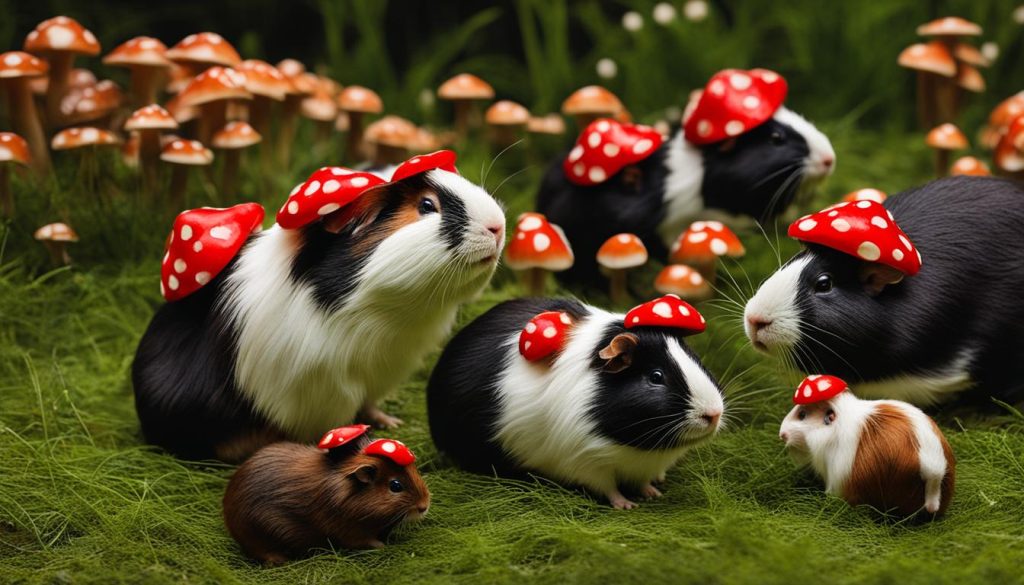
Mushroom safety is not an area to take lightly. Protect your guinea pig by avoiding exposure to wild mushrooms and providing them with a safe and controlled diet. This way, you can ensure their well-being and enjoy their company for many years to come.
How to Safely Feed Mushrooms to Guinea Pigs
If you choose to feed mushrooms to your guinea pig, it is important to do so safely. Guinea pigs have delicate digestive systems, so it’s crucial to ensure that you are offering mushrooms in a way that won’t harm them. Follow these guidelines to safely incorporate mushrooms into your guinea pig’s diet.
Offer only raw mushrooms: Guinea pigs have difficulty digesting cooked foods, so it’s essential to offer raw mushrooms. Cooking mushrooms removes important nutrients and can make them difficult for your guinea pig to digest properly. By serving raw mushrooms, you ensure that your guinea pig can benefit from the mushroom’s natural nutritional content.
Choose safe mushroom varieties: Not all mushrooms are safe for guinea pigs to consume. Stick to safe varieties such as white, button, or portobello mushrooms. These varieties are widely available and provide a safer option for your furry friend.
Avoid excessive quantities: While mushrooms can offer some nutritional benefits, they should not make up a significant portion of your guinea pig’s diet. Instead, view mushrooms as an occasional treat. Feeding large quantities of mushrooms can fill up your guinea pig’s stomach and potentially leave less room for more nutritious foods that they need.
Remember, mushrooms should not replace the staple components of your guinea pig’s diet. A balanced guinea pig diet primarily consists of hay, pellets, and fresh vegetables. Mushrooms can be given in small quantities as a special, occasional treat, but they should not be the main focus of their meals.
Conclusion
Can guinea pigs eat mushrooms? While it’s true that guinea pigs can consume certain varieties of mushrooms in moderation, it’s crucial to consider their nutritional needs and prioritize their main diet. Mushrooms do not provide the essential nutrients that guinea pigs require to thrive, such as vitamin C. Therefore, mushrooms should only be offered as an occasional treat and should not make up a significant part of their diet.
It’s also important to note that feeding guinea pigs wild mushrooms can be extremely dangerous. Many wild mushrooms are highly toxic and can cause severe illness or even be fatal for guinea pigs. To ensure the safety of your furry friend, it is strongly advised to avoid foraging for wild mushrooms and to only offer safe varieties, such as white, button, or portobello mushrooms.
If you have any concerns or questions about feeding mushrooms to your guinea pig, it is always best to consult with a veterinarian who specializes in exotic pets. They can provide you with expert guidance tailored to your guinea pig’s specific needs and ensure their overall health and well-being.
FAQ
Can guinea pigs eat mushrooms?
Guinea pigs can eat certain mushrooms in moderation. Safe varieties include white, button, and portobello mushrooms, which are all the same mushroom at various stages of maturity. However, many wild mushrooms are highly dangerous for guinea pigs, and even a small nibble can cause illness or death.
Are mushrooms beneficial for guinea pigs?
Mushrooms can provide a moderate source of plant-based protein and a modest amount of fiber, which are important components of a guinea pig’s diet. They also contain riboflavin and niacin, which are necessary for guinea pig health. However, it’s important to note that guinea pigs should primarily get their fiber from hay and grass, and mushrooms do not contain significant amounts of the main nutrients, such as vitamin C, that guinea pigs require.
Are wild mushrooms safe for guinea pigs?
Many wild mushrooms are highly toxic to not only guinea pigs, but also to other pets and humans. Even a small nibble of a wild mushroom can cause illness or death in a guinea pig due to their small size. Therefore, it is strongly advised against foraging for wild mushrooms for yourself or your pets.
How should I feed mushrooms to my guinea pig?
If you choose to feed mushrooms to your guinea pig, it is important to do so safely. Only offer raw mushrooms to your guinea pig, as their digestive systems are not equipped to digest cooked food. It is also crucial to ensure that the mushrooms are safe varieties, such as white, button, or portobello mushrooms. Avoid feeding your guinea pig large quantities of mushrooms, as they do not provide the necessary nutrients and can fill up the guinea pig’s stomach, leaving less room for more nutritious foods.
What should I prioritize in my guinea pig’s diet?
In conclusion, while guinea pigs can eat certain varieties of mushrooms in moderation, it’s important to prioritize their main diet and only offer mushrooms as an occasional treat. Mushrooms do not provide the necessary nutrients guinea pigs need to thrive, such as vitamin C, and should not make up a significant portion of their diet. Additionally, it is essential to avoid feeding guinea pigs wild mushrooms, as they can be highly toxic.

